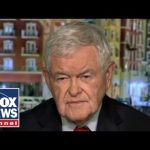The trade relationship between the United States and the European Union has entered a new phase of tension as President Donald Trump, with the vocal support of his senior trade advisor Peter Navarro, announced sweeping tariffs aimed at addressing what they describe as a deeply unfair trade imbalance. With the EU running a significant trade surplus in goods, Trump’s administration is taking a hardline stance to “level the playing field” and protect American industries.
Navarro, known for his sharp critiques of global trade practices, highlighted the EU’s $157 billion goods surplus with the U.S. in 2023 as evidence of systemic inequities in trade policies. He pointed to glaring disparities, such as the EU’s 10% tariff on American car imports compared to the U.S.’s mere 2.5% levy on European vehicles. Navarro called these policies “corporate welfare” for European industries, arguing that they not only harm American manufacturers but also undermine broader economic fairness.
The administration’s latest move includes reinstating and expanding tariffs on steel and aluminum imports to a flat 25%, eliminating previous exemptions for EU member states. Trump has framed these tariffs as essential for national security, citing chronic global overcapacity and foreign subsidies that have weakened U.S. manufacturing. Navarro echoed this sentiment, emphasizing that restoring domestic production capacity is critical for both economic resilience and defense readiness.
While these actions have been met with applause from American steel and aluminum producers, critics warn of potential fallout. European leaders have vowed to retaliate with their tariffs on U.S. goods, targeting politically sensitive exports such as bourbon, motorcycles, and agricultural products. Economists caution that such tit-for-tat measures could escalate into a broader trade war, disrupting supply chains and raising costs for consumers on both sides of the Atlantic.
Trump’s tariffs represent a necessary correction to decades of complacency in U.S.-EU trade relations. For too long, European nations have benefited from favorable trade terms while falling short in other areas, such as defense spending under NATO agreements—a point Navarro humorously underscored by suggesting Europe use its trade surplus to fund its military obligations. These tariffs are not just about economics; they signal a broader push for accountability and reciprocity in international relations.
As the transatlantic trade dispute unfolds, it remains to be seen whether Trump’s aggressive approach will force the EU to renegotiate its policies or deepen divisions between longstanding allies. For now, the administration appears resolute in its belief that bold action is necessary to restore balance and strengthen America’s economic position on the global stage.




